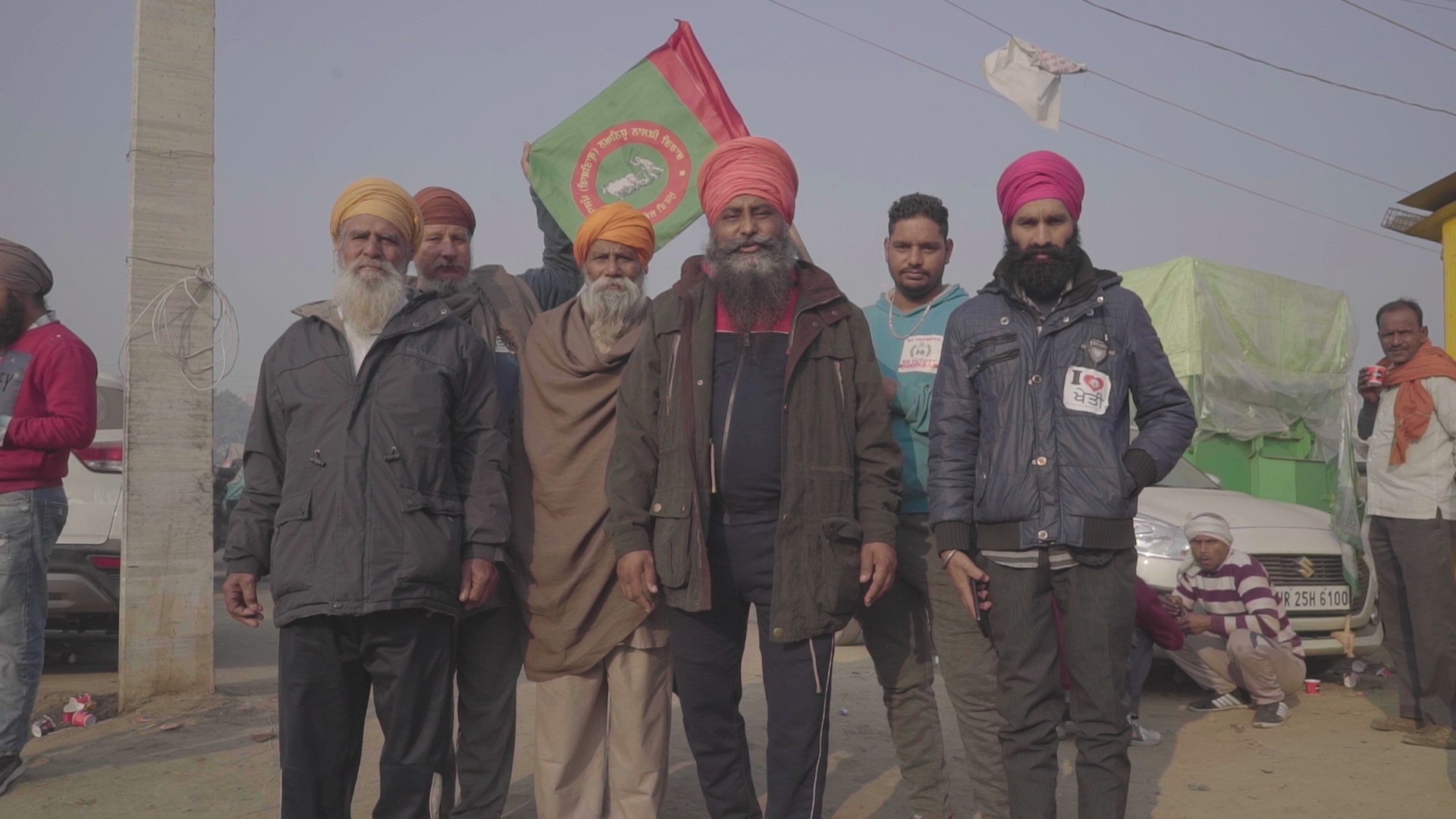Women took the stage at Tikri border, where they raised slogans against the controversial laws.
Protesters, including women and children, have been joining the protests since they first broke out in November 2020.
Left: A woman drives a tractor full of protesters into the Tikri site. Right: Women who have been away from their homes since Nov. 2020.
The yellow dupattas (scarves) is a symbol for the mustard fields that are found in abundance in the state of Punjab.
Menstrual hygiene is an important part of life for women, especially at the protest site. Volunteers told VICE World News that many women are shy to express their needs, while men do not talk about it openly. However, NGOs have made sure there's no dearth of essentials in case anybody asks for them.
Protesters rest up at the foot massaging camp at Tikri border.
The protest site is also a space for women to resume their everyday activities, but with a lot of uncertainties. When asked when she would like to go home, this woman replied, "This is my home now, with a bigger family,"

